Gastrointestinal Wet Food for Cats 190g: Complete Digestive Support Guide
Digestive health plays a vital role in your cat’s overall wellness. Whether it’s dealing with chronic vomiting, diarrhea, IBD, or post-surgical recovery, the digestive system requires gentle and targeted nutritional support. That’s where Gastrointestinal Wet Food for Cats 190g comes in—a specially formulated veterinary diet designed to soothe, nourish, and restore the feline gastrointestinal tract.
What Is Gastrointestinal Wet Food for Cats?
Gastrointestinal Wet Food for Cats is a specially formulated therapeutic diet designed to support cats with digestive issues. It combines highly digestible ingredients, optimal moisture content, and essential nutrients that help promote gastrointestinal health and recovery. This food is ideal for cats with conditions such as diarrhea, vomiting, inflammatory bowel disease (IBD), pancreatitis, and food sensitivities.
Key Features:
- Highly Digestible Proteins: The food contains easy-to-digest protein sources like chicken or turkey, ensuring minimal strain on the digestive system.
- Moisture-Rich: With a high moisture content (about 75–80%), this food helps maintain hydration, which is crucial for cats recovering from digestive disturbances or dehydration.
- Prebiotics: The inclusion of prebiotic fibers like FOS (Fructo-oligosaccharides) supports the growth of healthy gut bacteria, enhancing digestion and overall gut health.
- Low Fat Content: For cats with pancreatitis or fat intolerance, gastrointestinal wet food contains controlled fat levels to reduce the risk of exacerbating their condition.
- Balanced Nutrition: Designed to meet all of a cat’s nutritional needs while being gentle on their sensitive stomach.
Why Gastrointestinal Health Matters in Cats
Feline digestive issues are more common than many pet owners realize. A disrupted digestive system can affect nutrient absorption, hydration, and immune response. Cats are particularly sensitive to dietary changes, infections, parasites, and stress—all of which can trigger gastrointestinal symptoms.
Common GI issues in cats include:
- Acute and chronic diarrhea
- Vomiting
- Constipation
- Inflammatory bowel disease (IBD)
- Pancreatitis
- Intestinal infections
- Post-antibiotic dysbiosis
Indications for Use of Gastrointestinal Wet Food for Cats 190g
Gastrointestinal Wet Food for Cats 190g is a specialized, therapeutic diet formulated to address a variety of gastrointestinal (GI) disorders in cats. It is particularly beneficial for the following conditions:
1. Acute or Chronic Diarrhea
- Helps manage and control diarrheal episodes, supporting recovery and firming up stools.
2. Vomiting and Regurgitation
- Ideal for cats experiencing frequent vomiting due to gastrointestinal upset, food sensitivities, or inflammatory conditions.
3. Inflammatory Bowel Disease (IBD)
- Supports cats with chronic inflammatory conditions like IBD, providing easy-to-digest ingredients and prebiotics to reduce gut inflammation.
4. Pancreatitis
- A low-fat diet that is gentle on the pancreas, supporting cats in recovery from mild to moderate pancreatitis.
5. Exocrine Pancreatic Insufficiency (EPI)
- Helps manage EPI by providing highly digestible nutrients that require minimal pancreatic enzyme activity.
6. Food Sensitivities and Allergies
- Recommended for cats with food intolerances or allergies, as it contains carefully selected ingredients to reduce reactions.
7. Post-Surgical Recovery
- Used during post-operative recovery (especially GI surgeries), to restore digestive function and promote healing.
8. Digestive Disturbances After Antibiotic Treatment
- Helps restore gut flora balance and alleviate digestive disturbances caused by antibiotics or other medications.
9. Malabsorption or Maldigestion Syndromes
- Aids cats with malabsorption, ensuring that they receive the nutrients they need despite compromised digestion.
Key Ingredients and Nutritional Profile
Gastrointestinal Wet Food for Cats is enriched with:
- Highly digestible proteins (e.g., chicken, turkey, fish)
- Prebiotics (e.g., FOS, MOS) – Support healthy gut microbiota
- Omega-3 and Omega-6 fatty acids – Anti-inflammatory action
- Electrolytes (sodium, potassium, chloride) – Restore hydration
- Soluble and insoluble fibers – Normalize stool consistency
- Antioxidants (vitamins E and C, selenium) – Strengthen immunity
Typical Nutritional Composition (per 100g):
| Nutrient | Amount |
| Crude Protein | 8.5% |
| Crude Fat | 5.0% |
| Crude Fiber | 1.0% |
| Moisture | 80.0% |
| Ash | 2.0% |
| Energy (kcal/100g) | ~90-100 |
Benefits of Gastrointestinal Wet Food
Here are the key benefits of this diet:
- Improved digestion: With hydrolyzed and easily digestible proteins
- Hydration boost: High moisture content helps with dehydration
- Microbiome support: Prebiotics nourish healthy gut bacteria
- Immune function enhancement: Fortified with vitamins and antioxidants
- Weight maintenance: Moderate fat content supports energy without overfeeding
- Palatability: Appealing taste encourages cats to eat during illness
- Clinically proven: Formulated based on veterinary science
Feeding Guidelines for Gastrointestinal Wet Food 190g
Administering the correct amount of Gastrointestinal Wet Food is essential for effective treatment and digestive recovery. The dosage depends on your cat’s body weight, age, activity level, and clinical condition. Your veterinarian may tailor the dosage based on specific needs such as weight gain, diarrhea recovery, or long-term digestive management.
General Feeding Guidelines
- Food Type: Complete and balanced wet diet
- Frequency: Split into 2–3 meals per day
- Duration: As advised by the veterinarian (typically 5–14 days for acute issues, long-term for chronic conditions like IBD)
Daily Feeding Recommendations
| Cat’s Body Weight | Daily Amount (grams) | Approx. Cans per Day (190g each) |
| 2 – 2.5 kg | 110 – 130 g | 0.6 – 0.7 can |
| 5 – 5.5 kg | 220 – 250 g | 1.2 – 1.3 cans |
| 6 – 6.5 kg | 260 – 290 g | 1.4 – 1.5 cans |
| 7 – 8 kg | 300 – 330 g | 1.6 – 1.8 cans |
Adjust the portion size as needed based on your cat’s condition, weight gain/loss, and vet recommendations.
Administration Tips
- Divide daily quantity into multiple small meals to reduce digestive stress.
- Use a clean bowl for each feeding to prevent contamination.
Duration of Feeding Based on Condition
| Condition | Recommended Duration |
| Acute diarrhea | 5–7 days |
| Post-surgery recovery | 7–14 days |
| Chronic GI conditions (IBD, pancreatitis) | Long-term or lifelong |
| Post-antibiotic support | 7–10 days |
Weight Monitoring
- Underweight or recovering from illness
- Suffering from malabsorption or IBD
- Eating less than usual
Health Risks, Safety Tips, and Contraindications
Safety Overview
Gastrointestinal Wet Food for Cats 190g is specifically formulated for cats with digestive disorders and has been clinically tested for both efficacy and safety. It contains highly digestible ingredients, low allergenic potential, and no artificial preservatives or colorants, making it safe for both short-term and long-term feeding—under veterinary supervision.
This formulation is generally well tolerated by cats of all breeds and ages, especially when transitioned properly. However, as with any therapeutic diet, caution is essential to avoid misuse or overuse in inappropriate cases.
Precautions to Consider
Before starting your cat on Gastrointestinal Wet Food, keep the following precautionary guidelines in mind:
- Veterinary Supervision Is Mandatory
Do not self-diagnose your cat or switch to a GI diet without expert input. - Not Meant for Healthy Cats
This food is not suitable for healthy cats or for use as a regular maintenance diet unless specifically recommended. Feeding it unnecessarily could disrupt the balance of nutrients. - Transition Slowly
Sudden dietary changes—even to therapeutic foods—can cause digestive upset. Always transition over 5–7 days unless directed otherwise in emergencies. - Water Must Be Available at All Times
Although the food has high moisture content, your cat must have free access to clean drinking water to support hydration and digestive processes. - Special Caution in Kittens, Pregnant, or Lactating Cats
Always verify product suitability with your vet if your cat is:- Under 6 months of age
- Pregnant or nursing
- Immunocompromised
- Do Not Mix with Non-GI Food Without Vet Approval
Mixing therapeutic diets with regular cat food can dilute its medical effectiveness. Always seek vet guidance if combining diets. - Storage Hygiene
- Refrigerate opened cans and use within 48 hours.
Possible Side Effects
While generally safe, some cats may experience:
- Mild bloating or gas
- Soft or loose stools during transition
- Temporary appetite loss
- Food refusal due to unfamiliar taste
- Rare allergic reactions (vomiting, itching, swelling)
Note: If severe or persistent symptoms occur, discontinue use and consult your veterinarian immediately.
Monitoring Your Cat During the Diet
While feeding a GI therapeutic diet:
- Monitor stool consistency and frequency
- Track appetite and energy levels
- Weigh your cat weekly if underweight or in recovery
- Schedule follow-up checkups with your veterinarian
Veterinary Endorsements and Recommendations
Veterinarians commonly recommend gastrointestinal diets as first-line therapy for:
- Enteritis and colitis
- GI upset post-medication
- Support during or after antibiotic therapy
- Recovery from digestive surgery
“This diet supports quicker recovery from GI disturbances and improves stool quality in most cases,” says Dr. Ramesh P., DVM (Feline Medicine Specialist).
Nutritional Science and Veterinary Findings
Gastrointestinal Wet Food for Cats 190g is supported by extensive veterinary research:
- Digestibility & Recovery: A 2020 Journal of Feline Medicine and Surgery study showed 68% improvement in stool quality and reduced vomiting in cats fed a highly digestible GI wet diet.
- Prebiotics & Microbiome: Research by Waltham Centre for Pet Nutrition found that FOS and MOS prebiotics enhance gut flora and reduce diarrhea in cats with IBD.
- Low Fat & Pancreatitis: A Royal Veterinary College trial confirmed that low-fat GI diets aid in faster recovery from feline pancreatitis.
- Hydration & Moisture: Veterinary Therapeutics Journal highlighted that wet diets with 80% moisture improve hydration and prevent constipation in cats with digestive issues.
- Veterinary Endorsement: Vets report consistent clinical improvement within 3–5 days of switching cats to GI wet food, especially in IBD, diarrhea, and post-antibiotic cases.
These findings affirm that gastrointestinal wet food is a safe, effective, and science-backed option for managing feline digestive disorders.
Conclusion
Gastrointestinal Wet Food for Cats 190g offers a scientifically formulated, veterinarian-recommended solution for managing a wide range of feline digestive issues—whether acute or chronic. With its highly digestible ingredients, optimal moisture content, and targeted prebiotics, it supports fast recovery, gut balance, and overall well-being. From conditions like diarrhea, vomiting, and IBD to post-surgical recovery and antibiotic-related gut disturbances, this diet delivers therapeutic nutrition tailored to the unique needs of cats with gastrointestinal sensitivities.







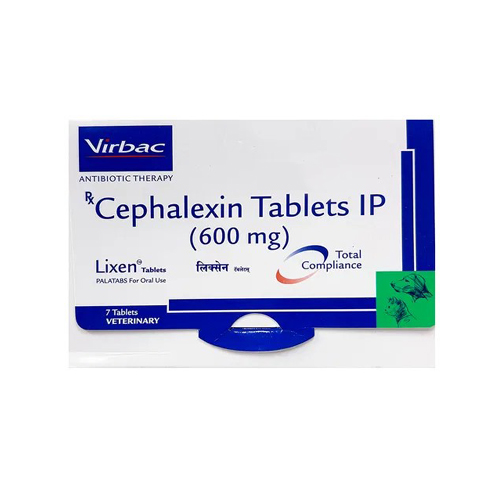
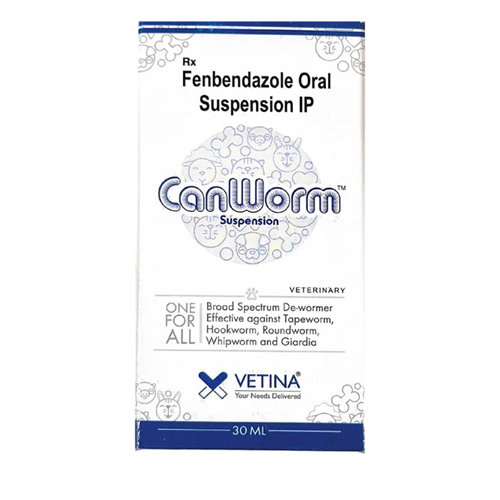


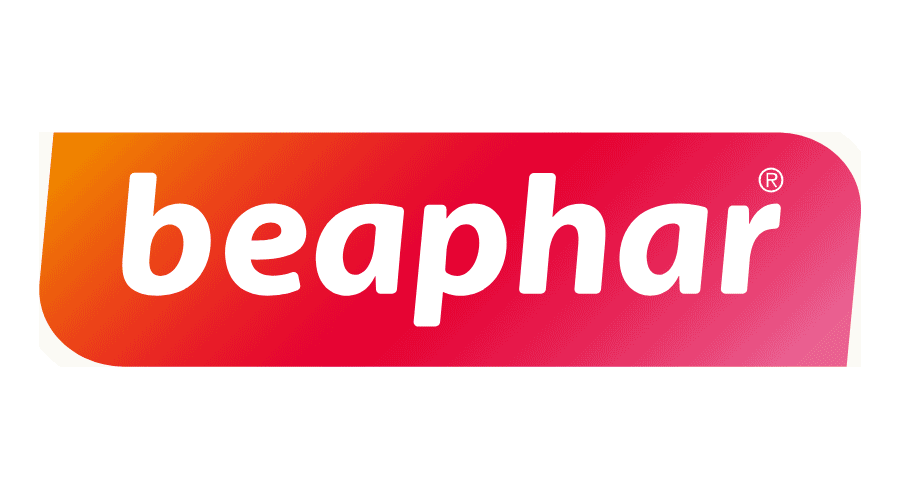
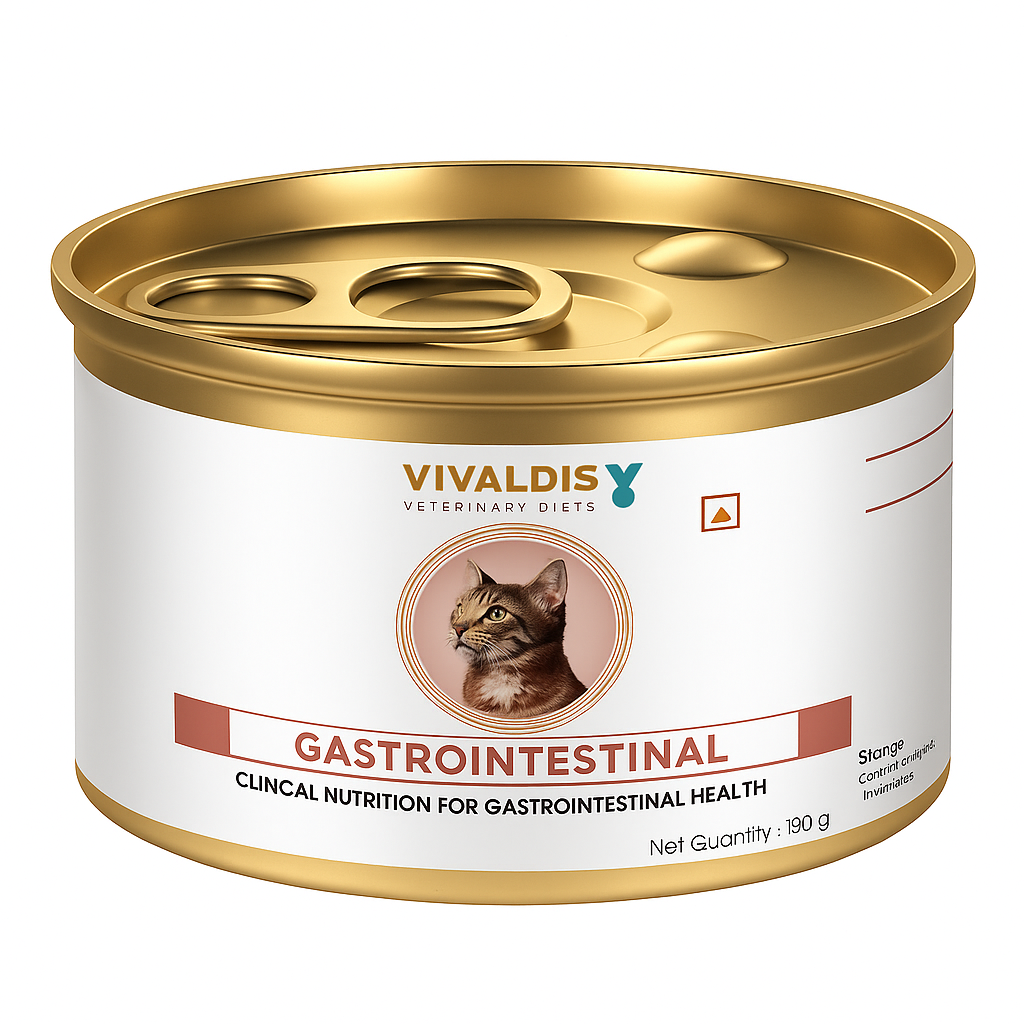


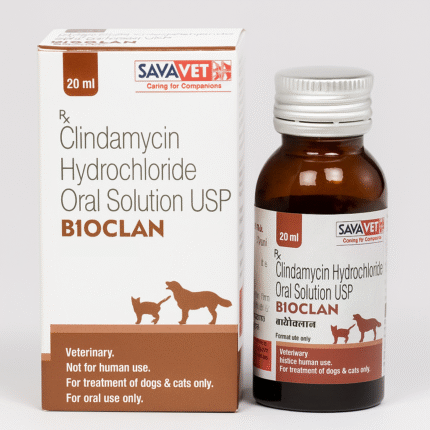

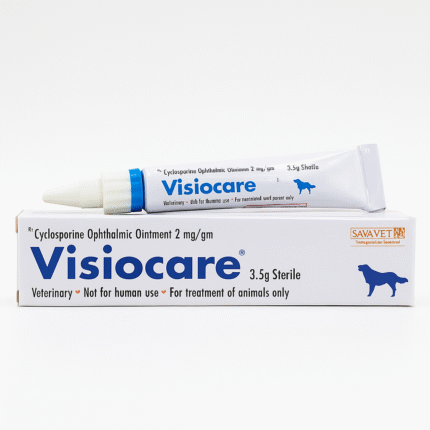


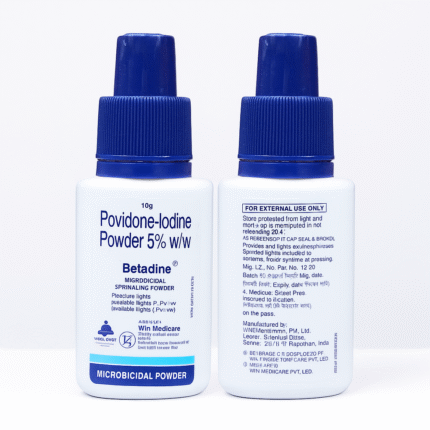
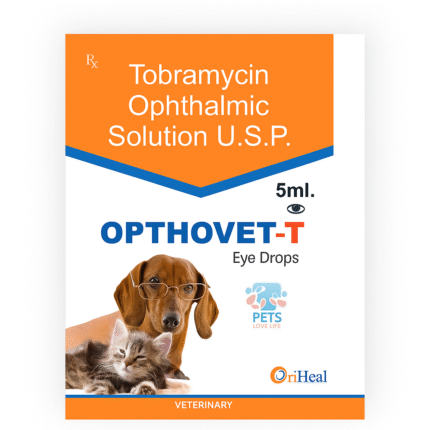
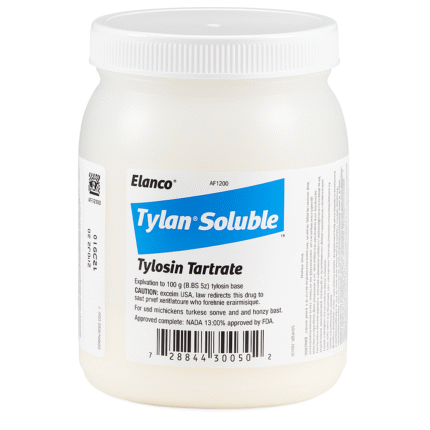

Reviews
There are no reviews yet.